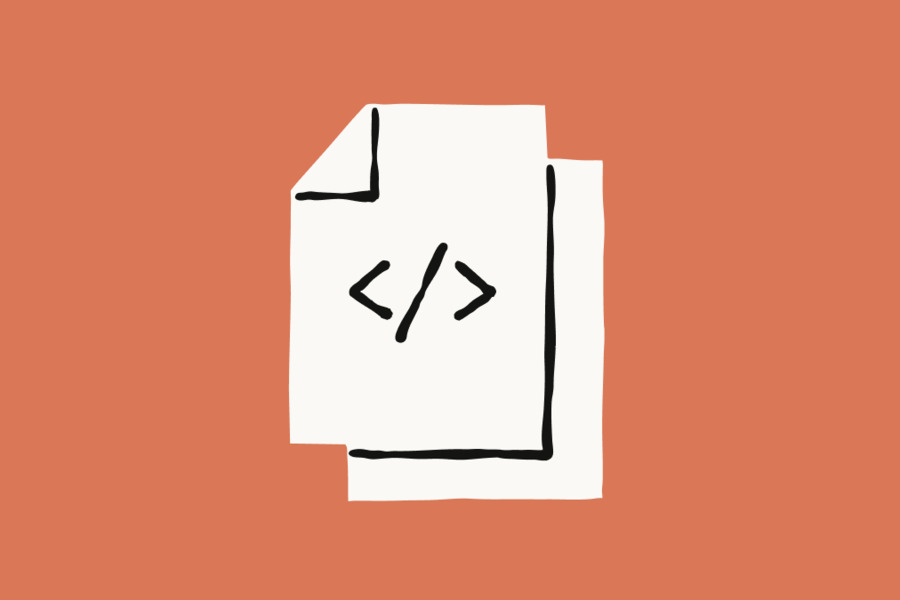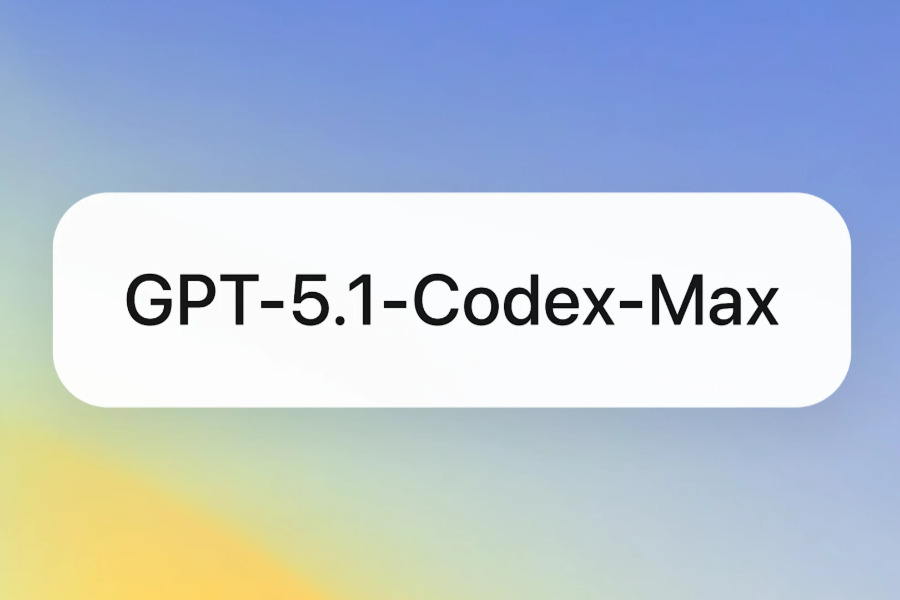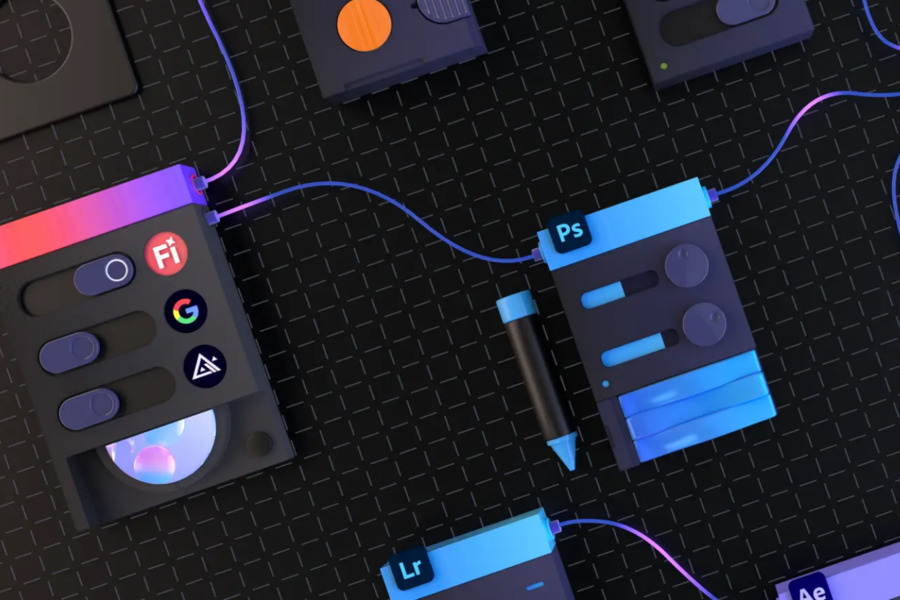In a significant move for the AI-assisted coding landscape, Anthropic has officially launched the public beta of its Claude Code Plugins system.
This transformative release evolves Claude Code from a powerful, standalone coding assistant into an open, highly customizable platform.
Developers can now seamlessly integrate specialized tools and functionalities directly into their AI-powered workflow, marking a strategic shift by Anthropic toward building a comprehensive, community-driven AI coding ecosystem.
4 Core Pillars of Claude Code Plugins
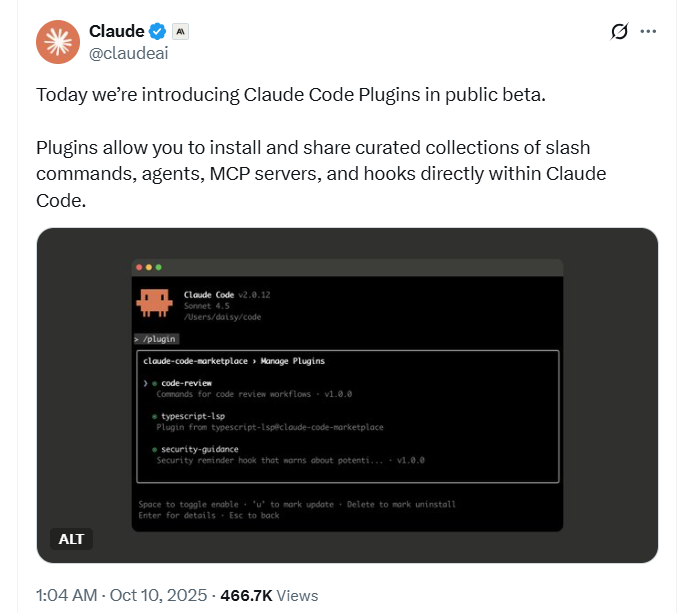
The architecture of the new Claude Code Plugins system is built upon four distinct components, each designed to grant developers unprecedented control and efficiency.
- Slash Commands in Claude Code Plugins: Moving beyond conversational assistance, these simple, prompt-based commands allow for instant execution of common operations. By typing a quick command, developers can now trigger complex tasks, dramatically streamlining daily workflows and pushing Claude Code from a conversational partner toward a tool for direct action and execution.
- Subagents in Claude Code Plugins: Functioning as specialized AI assistants, Subagents can be deployed to handle complex, multi-faceted development tasks autonomously. They are designed to simplify sophisticated workflows, such as managing a multi-stage deployment process, orchestrating a nuanced code refactoring, or handling intricate debugging sessions, all without constant user supervision.
- Model Context Protocol (MCP) Servers in Claude Code Plugins: A standout feature for enterprise adoption, MCP Servers provide a secure, standardized method for Claude Code to connect with external resources. This allows the AI to interact with databases, third-party APIs, proprietary internal systems, and project management tools like Jira or Asana. By providing real-time, external data access, MCP Servers enable Claude Code to act as a deeply integrated agent within a company’s entire tech stack.
- Hooks in Claude Code Plugins: For ultimate customization, Hooks allow developers to inject custom logic and behavior at critical stages within the Claude Code execution pipeline. This ensures the AI assistant can fully adapt its operations to meet the precise standards, coding conventions, and security requirements of any project or organization.
Managing these capabilities is streamlined through a central /plugin command, enabling users to effortlessly install, enable, or disable any plugin for flexible, on-demand workflow adjustments.
Read More: Claude Code 2.0 Launches
Introduction of Plugin Marketplaces
To support the sharing and governance of these custom tools, Anthropic has introduced Plugin Marketplaces for Claude Code Plugins. This mechanism allows teams, open-source communities, and entire organizations to centralize the management and distribution of their custom-built plugins. Setting up a new marketplace is intentionally simple, requiring developers only to add a configuration file to a standard Git repository.
The community has already begun to showcase the system’s potential with initial marketplaces dedicated to DevOps automation, comprehensive testing utilities, and automated documentation generation. To accelerate adoption, Anthropic has released an official suite of plugins addressing common developer needs, including automated code review, security vulnerability detection, and a dedicated SDK for building new Claude Agents. This marketplace model is expected to be the core driver of innovation, fostering a community where developers can share high-efficiency workflows and standardize team procedures.
Use Cases of Claude Code Plugins
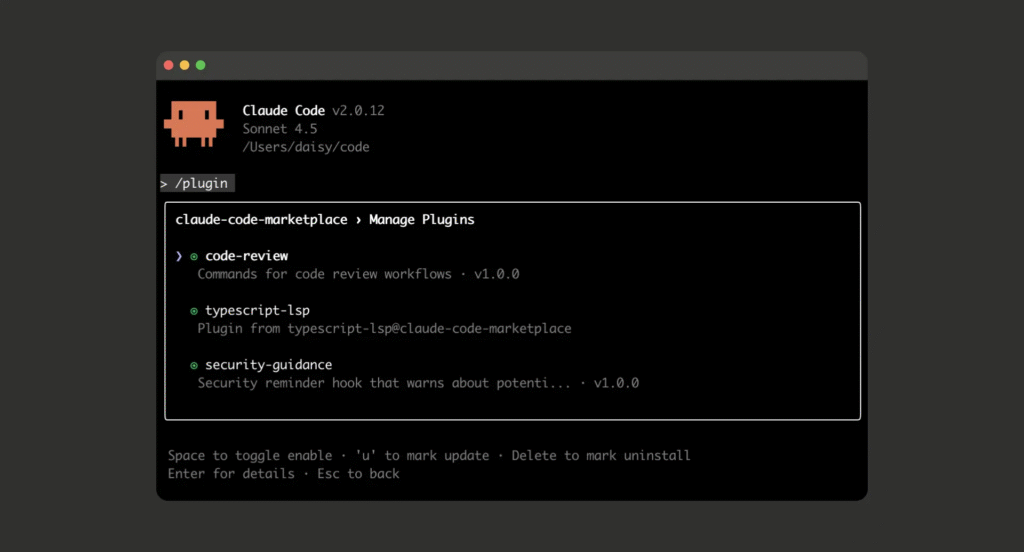
Anthropic has highlighted several practical scenarios where Claude Code Plugins deliver immediate value, solving common pain points for developers and engineering managers globally.
- Enforcing Team Standards and Governance: Engineering leads can use plugins to codify and automatically enforce team standards. For example, a plugin can be configured to mandate a code review before a Pull Request (PR) is merged or to automatically run a suite of mandatory unit and integration tests. This “paved path” approach eliminates manual checks and ensures a consistent, high-quality workflow across the entire team.
- Deep Integration with Existing Enterprise Toolchains: The MCP Server component is a game-changer for enterprise connectivity. A team can configure an MCP to link Claude Code directly to their project management software, allowing developers to pull task details, assign work, and update progress tickets using natural language commands from within their coding environment. More advanced implementations, such as a “Deep Graph MCP,” can add semantic search to an entire codebase, enabling complex queries like, “Find all the services that depend on the database schema I’m about to change.”
- Simplified and Standardized Workflow Sharing: The plugin system makes it trivial to package and share effective workflows. When a senior developer creates a powerful debugging setup, a specialized test configuration, or a deployment pipeline, it can be encapsulated into a plugin and shared instantly. Open-source maintainers can leverage this to create custom commands that guide new contributors, significantly lowering the barrier to entry for their projects and ensuring correct library usage.
Final Words on Claude Code Plugins
The launch of the Claude Code Plugins public beta marks a definitive evolution in the AI coding assistant space. It represents a strategic pivot from the AI as a “smart sidebar” to a fully customizable and extensible agent, deeply embedded into the developer’s core operational flow. This transition from a tool to a platform is a critical step forward.
The public beta is now open to all Claude Code users, offering a direct opportunity to experience this new era of productivity and customization. By empowering developers to connect, automate, and standardize their work with unprecedented flexibility, Anthropic is not merely enhancing an AI tool—it is actively architecting the future of software development.
The Claude Code Plugins system is poised to be a major catalyst for innovation, efficiency, and deep enterprise integration, setting a new standard for what an AI-assisted programming environment can achieve.
